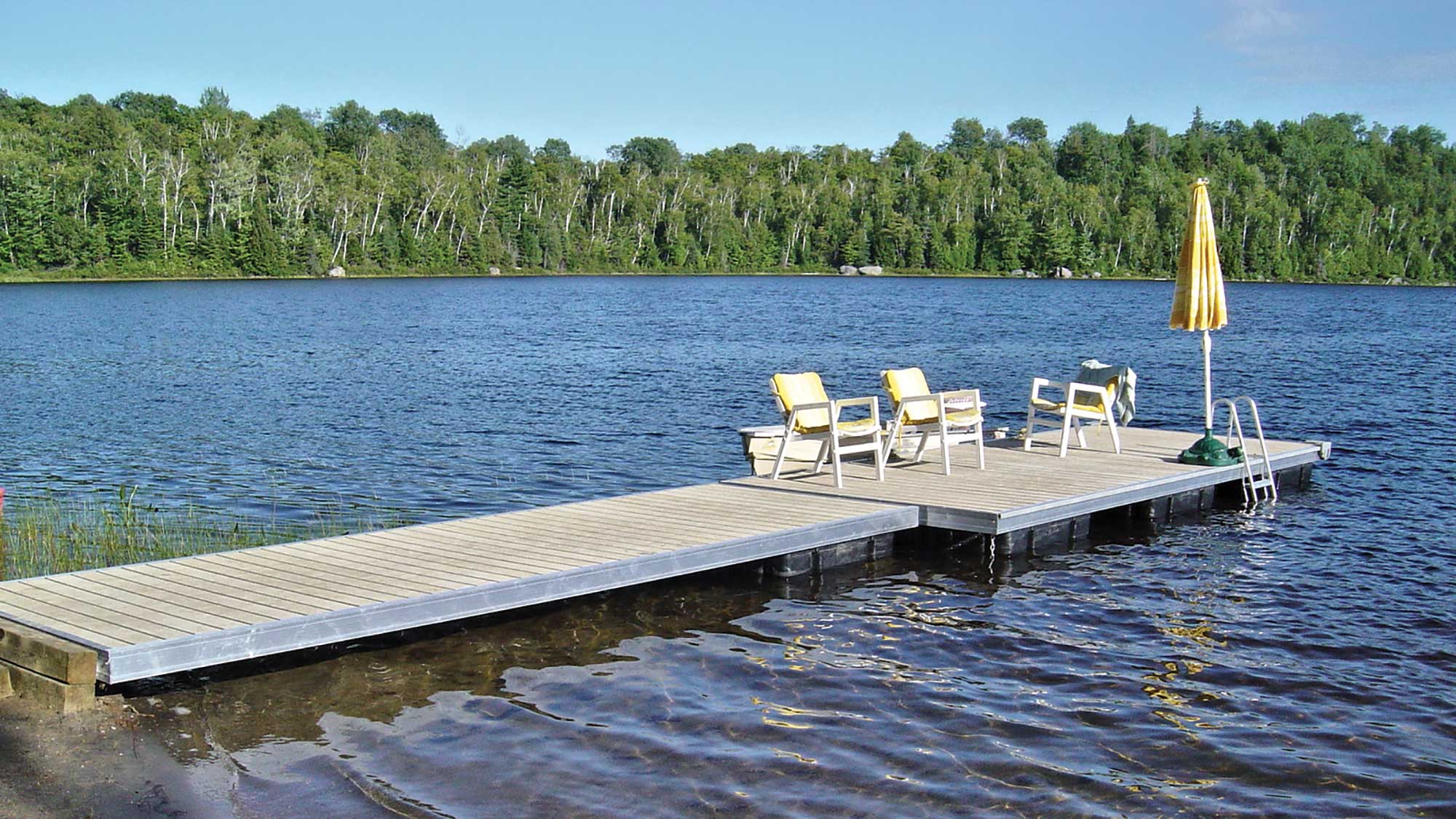Explore the Range of Floating Dock Services Designed to Suit Every Boater's Needs
Explore the Range of Floating Dock Services Designed to Suit Every Boater's Needs
Blog Article
Floating Docks: The Ideal Choice for Versatile Water Access
Floating docks present an engaging service for a selection of water accessibility requires, providing flexibility that transcends standard mooring choices. The modular nature of floating docks promotes personalization, catering to details needs.
Advantages of Floating Docks
Floating docks offer countless benefits that enhance water access for numerous applications. Their ability to fluctuate with transforming water degrees makes them especially helpful in atmospheres with changing tides or seasonal variants. This versatility ensures that vessels can quickly tie without worry for the water's depth, offering a trusted platform for leisure, commercial, and commercial usages.
In addition, floating docks are usually built from long lasting products that stand up to corrosion, making them appropriate for long-term usage in marine settings. Their setup is typically much less intrusive than typical set docks, lowering the environmental influence and helping with quicker deployment (dock company). This flexibility enables less complicated moving or reconfiguration according to individual demands or ecological changes
Safety is one more key advantage; floating docks can give secure gain access to for people boarding or getting off from boats and minimize the danger of mishaps related to unpredictable surfaces. They can be designed to accommodate a selection of devices, such as cleats and fenders, enhancing functionality. On the whole, floating docks represent an effective option for enhancing water gain access to across diverse industries while advertising safety and environmental sustainability.

Kinds Of Floating Docks
Various sorts of floating docks accommodate various needs and atmospheres, each made with specific attributes to maximize performance. One of the most usual types consist of modular docks, which contain interlocking areas that enable easy customization and growth. These docks are optimal for recreational use, as they can be customized to fit different boat sizes and water problems.
Another popular alternative is the fixed floating dock, which remains anchored in position yet floats with altering water levels. floating docks. This type is specifically fit for locations with very little tidal changes, supplying stable gain access to for fishing or swimming. Furthermore, there are drive-on docks, which feature a sloped style that allows watercrafts to easily drive on and off, making them appropriate for personal boat and smaller vessels
For business applications, sturdy floating docks are available, built from reinforced materials to stand up to substantial lots and severe marine environments. Green floating docks make use of sustainable materials and designs to minimize environmental impact, often including functions like vegetation to support regional wild animals. Understanding the numerous types of floating docks makes sure that users can choose the most appropriate option for their specific requirements.
Installment Process Overview
A successful installment of floating docks calls for cautious planning and attention to information to ensure optimal efficiency and security. The initial action includes examining the site problems, including water depth, present, and prospective challenges. This evaluation notifies the option of the suitable dock products and design customized to the certain atmosphere.
Following, obtaining necessary authorizations is crucial, as lots of territories have regulations regarding building on water bodies. The installment can continue when consents are protected. Begin by preparing the structure, which may entail anchoring systems or pilings tailored to the dock kind and neighborhood problems.
Adhering to the foundation arrangement, assemble the dock areas according to producer specs. Ensure that all elements are firmly fastened and straightened to endure environmental stress and anxieties. Placement the dock in the designated location, ensuring it is level and stable.

Upkeep Tips and Finest Practices
After the installation process is full, continuous upkeep plays a crucial function in guaranteeing the durability and performance of floating docks. Routine assessments need to be performed to identify any type of indications of wear, damages, or damage - floating dock services. Check for any type of loosened fittings, splits, or splitting up in the dock areas, as these can compromise architectural integrity
Cleaning up the dock is important to remove particles, algae, and other accumulation that can impact its appearance and security. Utilize a mild stress clean regularly to keep cleanliness without causing damage to the surface area. Furthermore, applying a safety sealer every couple of years can aid enhance durability and withstand ecological wear.
Take notice of the mooring lines and anchors, guaranteeing they are safe and free from corrosion. Replace any degraded parts without delay to stay clear of threats. Seasonal modifications may go to my site additionally be needed; during extreme weather condition problems, rearranging or reinforcing the dock can protect against damages.
Applications for Floating Docks
Floating docks offer a plethora of applications, accommodating both business and recreational demands. In recreational settings, they provide smooth accessibility to waterways for tasks such as boating, fishing, and swimming. Their flexible nature permits installment in differing water levels, making Recommended Site sure steady and secure access no matter tidal variations.
Readily, floating docks are vital for marinas and waterside organizations. They promote the docking of vessels, enabling effective discharging and loading of products. Their modular design permits very easy growth or reconfiguration to suit altering company needs, making them optimal for watercraft leasings, excursion operations, or fishing charters.
Furthermore, floating docks are used in environmental applications such as aquatic research and environment restoration. They can act as systems for clinical researches, keeping track of water quality, or performing wildlife surveys without troubling sensitive environments.
In commercial contexts, floating docks are utilized in building tasks, giving access to hard-to-reach locations for equipment and personnel. Their convenience, toughness, and minimal influence on the atmosphere make them an ideal option for a variety of applications, improving both performance and access in various water-based environments.
Final Thought
In final here thought, floating docks represent an optimal option for varied water access needs, owing to their adaptability, toughness, and modular design. Floating docks offer as an important property for recreational, business, and environmental projects, ensuring reputable accessibility to rivers and promoting sustainable practices in marine atmospheres.
Floating docks present an engaging option for a selection of water access requires, supplying adaptability that transcends typical mooring alternatives.Floating docks offer countless advantages that improve water gain access to for numerous applications. On the whole, floating docks represent an effective option for enhancing water gain access to throughout varied fields while advertising safety and security and ecological sustainability.
One more popular choice is the stationary floating dock, which remains anchored in location however drifts with transforming water degrees.In verdict, floating docks stand for an optimum service for diverse water gain access to needs, owing to their versatility, longevity, and modular style.
Report this page